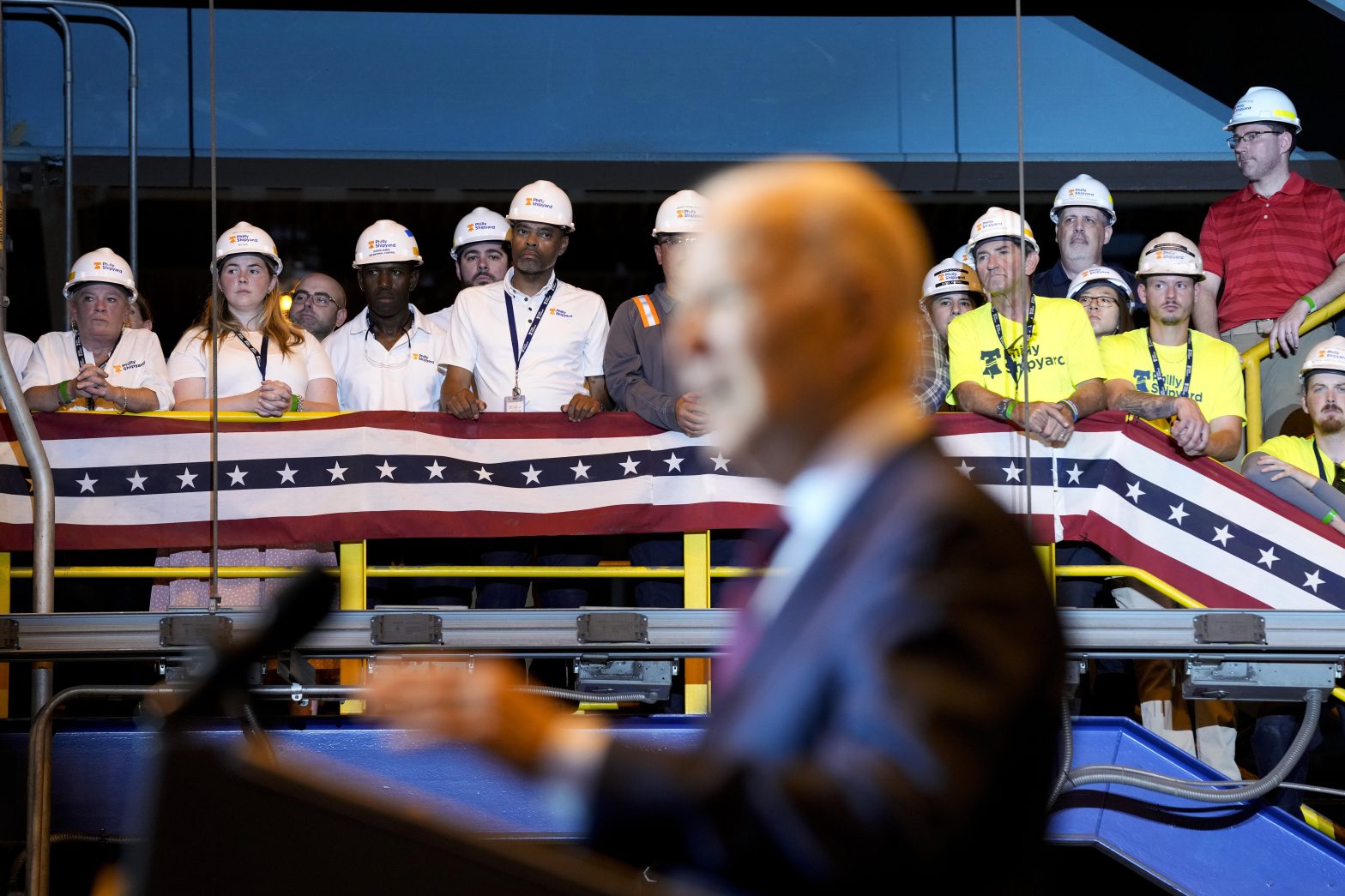The Inflation Reduction Act Gives Clean Manufacturing Its Moment to Shine
COMMENTARY

One year ago, President Biden’s signature on the Inflation Reduction Act boosted our race to build a clean energy economy that works for workers and invests in hard-hit communities.
Over the past year, the tempo has escalated as companies have announced more than 80 new or expanded facilities to manufacture the nuts and bolts of our clean energy future. That’s faster than anyone predicted.
When we picture the clean energy economy, many of us envision wind and solar power or maybe electric vehicles, but not the thousands of workers who are now getting jobs in manufacturing facilities across the nation to build wind turbines, solar panels or EV batteries.
Or the mill workers who make the steel that is 90% of an offshore wind turbine, or those in smelters making the aluminum that constitutes 85% of a solar panel. We also may not think of the innovative technologies available to reduce emissions from those facilities. But the Inflation Reduction Act invests in all of that.
Clean manufacturing is finally getting its moment in the sun.
Clean manufacturing refers to two complementary shifts that are transforming our economy’s industrial base. First, we are onshoring the manufacturing of clean technologies — from EVs to clean energy to components for our electric grid.
For too long, we have pinned our climate goals on vulnerable overseas production that is marred by labor abuses, higher pollution and instability. The Inflation Reduction Act invests more than $40 billion — an unprecedented sum — to build fairer, cleaner and stronger supply chains at home to manufacture clean energy.
Thanks to just one provision in the law, U.S.-made wind and solar components will become cheaper than imports for the first time ever, helping to create more than 800,000 solar and wind manufacturing jobs.
Second, clean manufacturing means transforming how we make our economy’s bedrock materials — like steel, aluminum and cement — to cut pollution, support clean air and foster good jobs.
The United States already makes some of the cleanest steel in the world, for example. However, the industrial sector still accounts for about 30% of U.S. emissions. The Inflation Reduction Act invests billions in facilities to adopt new technologies that cut those emissions, protect our air and water, and reinvest in communities hollowed out by manufacturing job losses.
Just this month, for example, dozens of manufacturing companies applied for about $6 billion in federal grants funded by the Inflation Reduction Act to invest in facilities where workers can make essential materials with lower emissions and higher wages.
These landmark investments in clean manufacturing, if we get the details right, will help reverse the impact of decades of corporations prioritizing profits over U.S. workers by shipping jobs to countries with lower labor and environmental standards. The Inflation Reduction Act offers a rare opportunity to redress longstanding injustices by investing in good jobs and clean air in communities that have endured decades of divestment.
Importantly, many of the jobs being created do not require a college degree. Union-affiliated training programs offer “learn while you earn” pathways into the middle class for U.S. workers who have been held back for too long. That’s why, more and more, U.S. workers can see themselves or the people close to them in the kinds of jobs being created in the clean energy economy.
Clean manufacturing is a vital part of building a fair and prosperous economy. Game-changing federal investments now offer an opportunity to build our clean energy future on a foundation of good jobs, cutting-edge manufacturing and more reliable, equitable supply chains.
Communities that have been hollowed out by unfair trade deals, excluded by racial discrimination, impacted by energy transition and saddled with environmental injustice can use this wave of federal funding to revitalize their local economies. They can now take the reins over a legacy of shuttered factories and instead build a homegrown clean economy that works for all.
That offers a potential win-win-win: a win for the workers securing good, safe jobs, for the hard-hit communities seeing manufacturing investments for the first time in decades, and for all of us who seek breathable air, clean water and a livable climate.
Ben Beachy is vice president of manufacturing and industrial policy at the BlueGreen Alliance. He has worked to transform economic policies for two decades in organizations fighting for climate equity, workers’ and immigrants’ rights, racial justice and public health. Find Beachy and BGAlliance on Twitter.
























